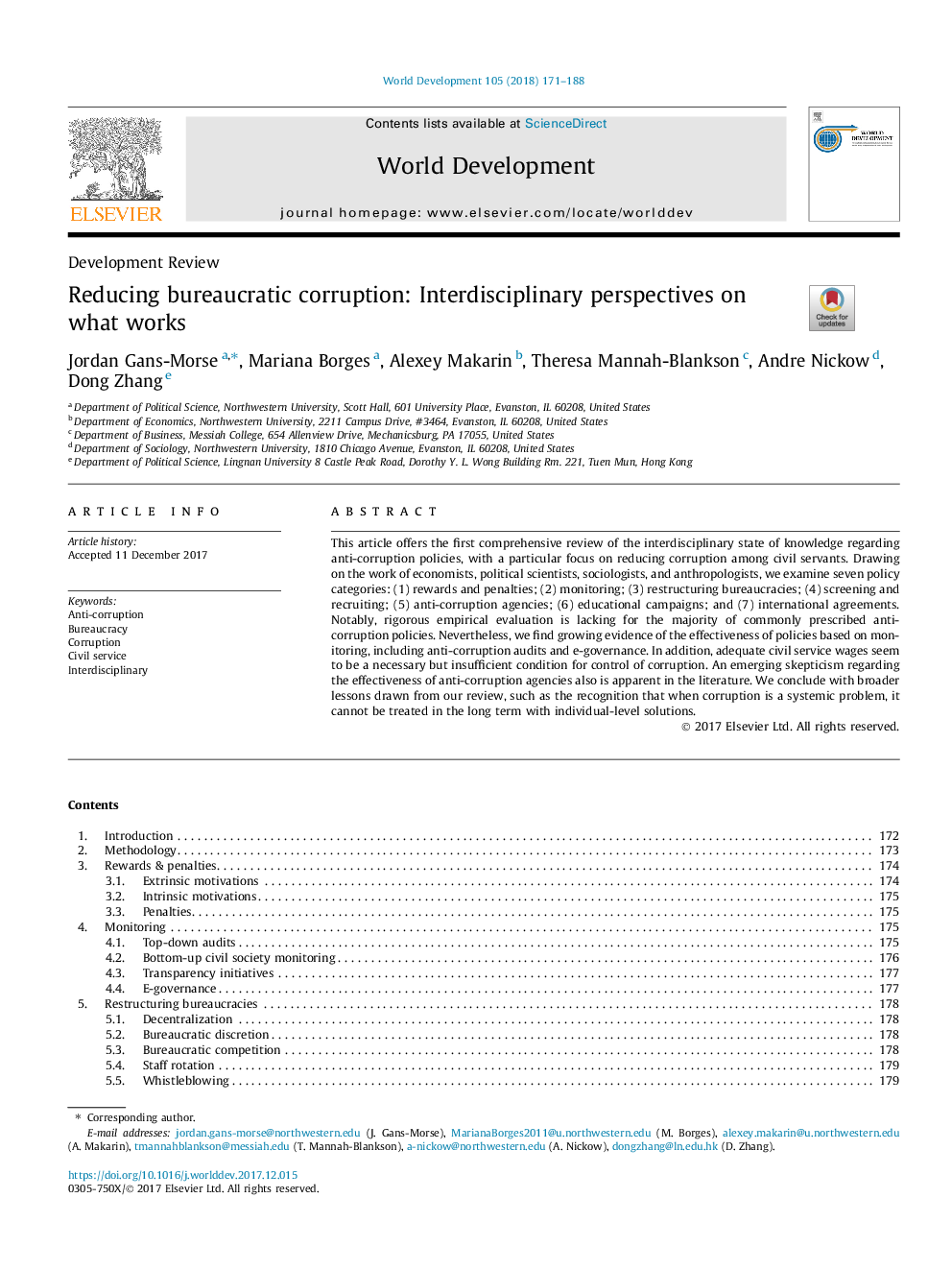| Article ID | Journal | Published Year | Pages | File Type |
|---|---|---|---|---|
| 7392264 | World Development | 2018 | 18 Pages |
Abstract
This article offers the first comprehensive review of the interdisciplinary state of knowledge regarding anti-corruption policies, with a particular focus on reducing corruption among civil servants. Drawing on the work of economists, political scientists, sociologists, and anthropologists, we examine seven policy categories: (1) rewards and penalties; (2) monitoring; (3) restructuring bureaucracies; (4) screening and recruiting; (5) anti-corruption agencies; (6) educational campaigns; and (7) international agreements. Notably, rigorous empirical evaluation is lacking for the majority of commonly prescribed anti-corruption policies. Nevertheless, we find growing evidence of the effectiveness of policies based on monitoring, including anti-corruption audits and e-governance. In addition, adequate civil service wages seem to be a necessary but insufficient condition for control of corruption. An emerging skepticism regarding the effectiveness of anti-corruption agencies also is apparent in the literature. We conclude with broader lessons drawn from our review, such as the recognition that when corruption is a systemic problem, it cannot be treated in the long term with individual-level solutions.
Related Topics
Social Sciences and Humanities
Economics, Econometrics and Finance
Economics and Econometrics
Authors
Jordan Gans-Morse, Mariana Borges, Alexey Makarin, Theresa Mannah-Blankson, Andre Nickow, Dong Zhang,
